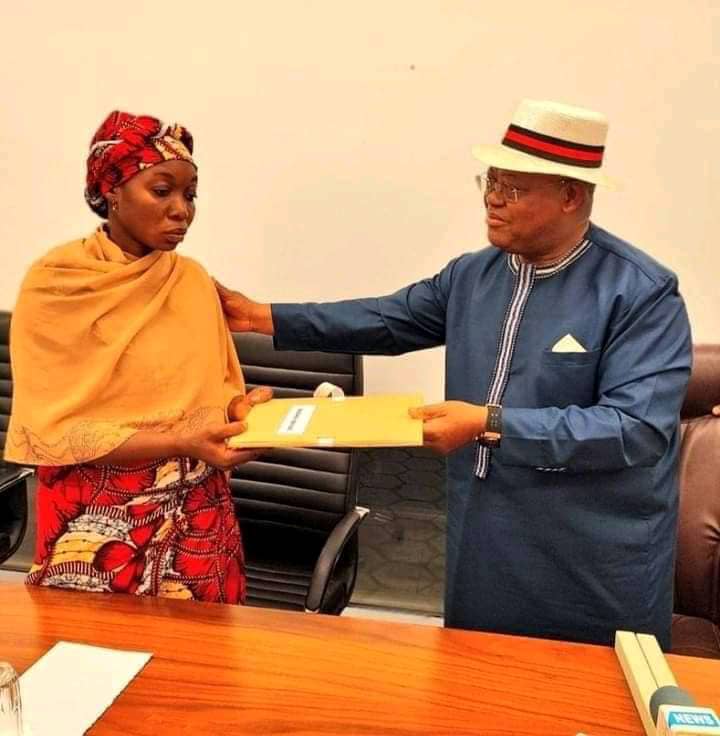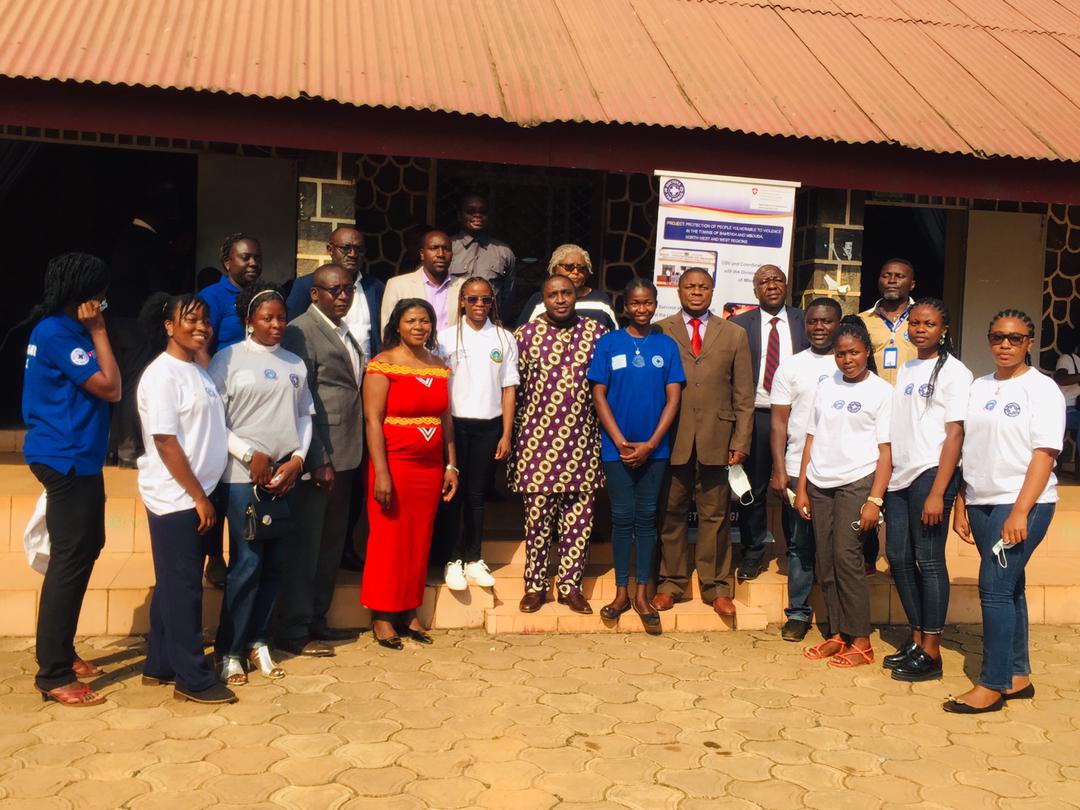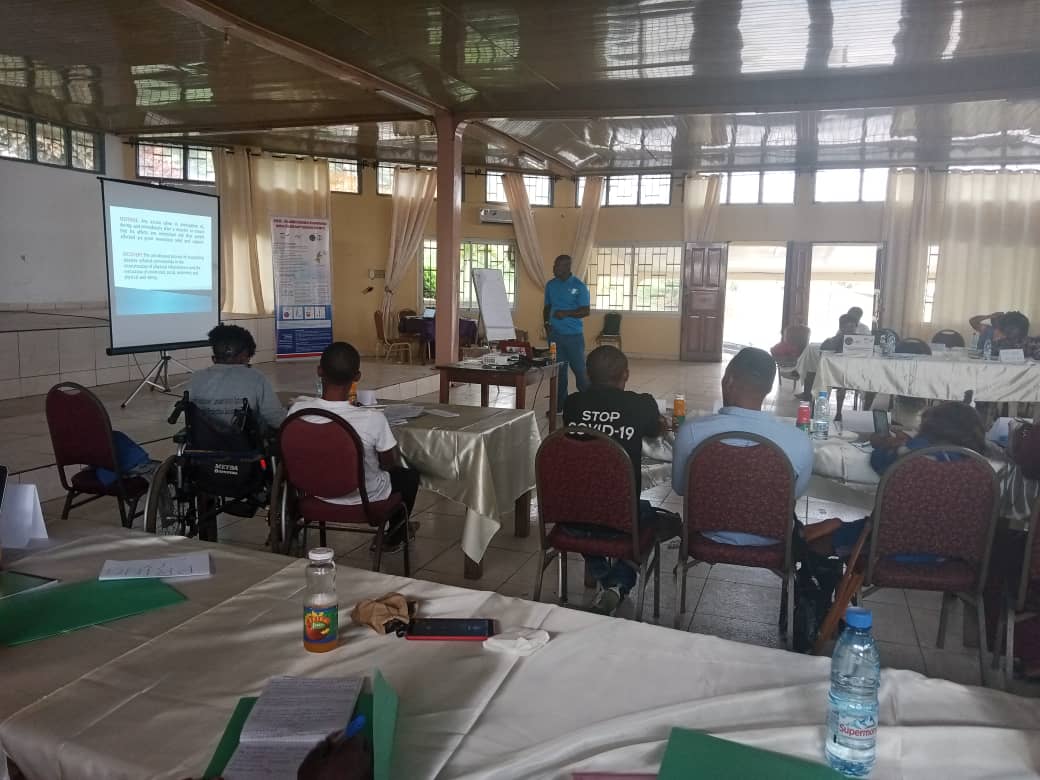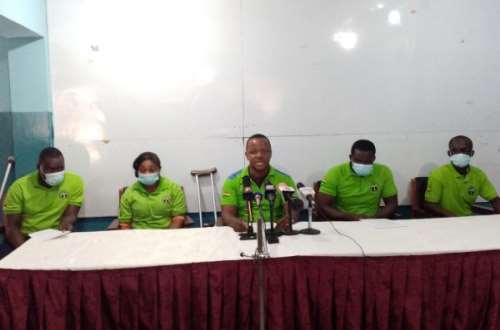By Kesah Princely in Buea
While growing up as a little girl in Kumbo, Cameroon’s Northwest Region, Aishatu Fabani was surrounded by many a person from within the Mbororo Fulani minority ethnic group.
Most of them were her primary and secondary school mates.
The Mbororo Fulani are one of two main minority ethnic groups in Cameroon. They are predominantly Muslims, and their occupation is mainly cattle rearing.
Over the years, Aishatu Fabani has been puzzled by the fact that her Mbororo Fulani childhood school mates ended up without acquiring university education.
Always recalling how intelligent and smart most of the Mbororo pupils and students were in primary and secondary schools respectively, Aishatu decided not only to become an activist to promote formal education among this category of Cameroonians.
She has as well been motivated to base her PhD research on the area which remains underexploited by academics and research institutions in the country and in some parts of the African continent.
“I began my advocacy for Mbororo girl children to have formal education ten years ago, and became more and more passionate about them much that, I have focused my research around the area,” she intimated.
“Culture And Higher Education Attainment Among Mbororo Fulani Citizens In Cameroon” is the title of the PhD Thesis, defended by Aishatu Fabani, Tuesday November 29, 2022.
The rigorous academic discourse was held at the boardroom of the Faculty of Education, University of Buea, Cameroon’s Southwest Region.
For two hours, the Civil Society Activist cum Researcher justified why most Mbororo Fulani citizens never attain higher education before a four-man jury of academics, chaired by Professor Therese Tchombe.
Aishatu Fabani found out that culture generally serves as a menace to the education of this minority group of people.
Marriage customs, nomadic activities and religious belief are some cultural aspects identified by the researcher which pose a serious threat to the education of young Mbororo girls and boys.
The scholar narrated the experience of a little school boy whose father made a tempting offer to him provided he drops out of school.
3 cows would be handed to the young education enthusiast immediately if he says no to education and dedicates himself to nomadism, his father’s profession.
Accepting the alluring offer meant the little boy would instantly become rich overnight, but his love for education would not allow him to do so, after all, quality education is itself wealth.
This experience was shared during a focus group discussion in the North Region of Cameroon.
Meantime, statistics from the Mbororo Social and Cultural Development Association, MBOSCUDA indicates that only 200 Mbororo students are currently enrolled in higher institutions of learning across the country.
What is needed to encourage higher education within the Mbororo community?
Shortly after defending the PhD thesis, the new Doctor, 32, in an exclusive interview with TWIF NEWS, made crucial recommendations to policy makers, civil society and academics.
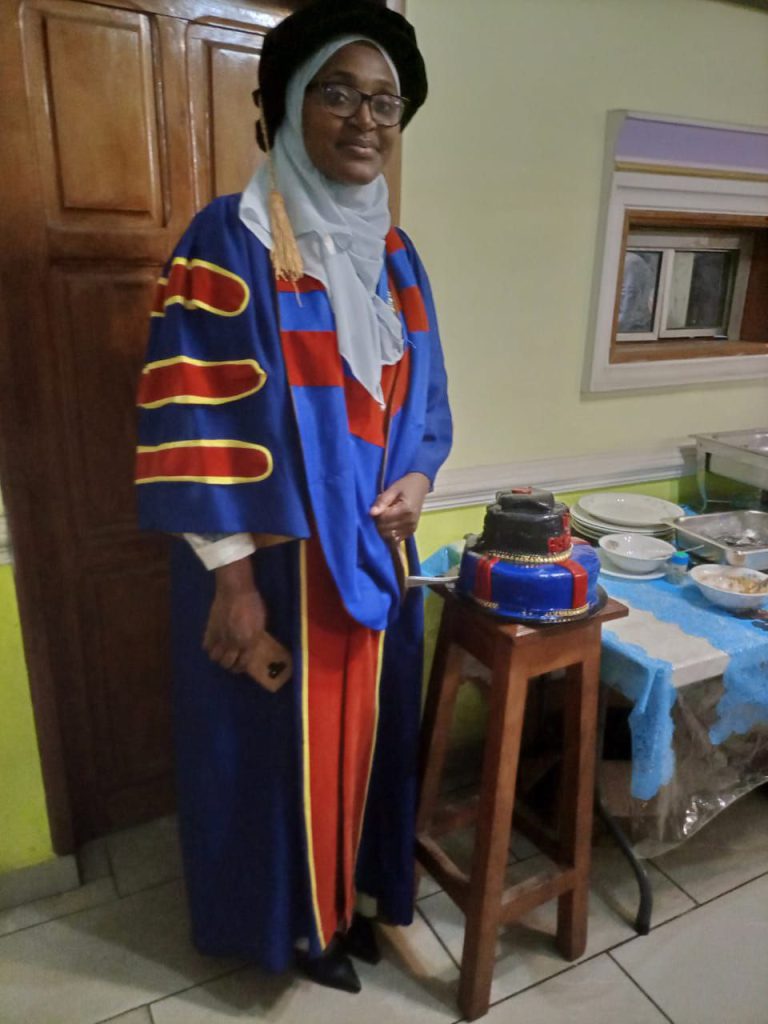
“Good policies should be passed to enable the Mbororo to attend schools and still catch up with their prayer time which is part of their way of life,” she said.
Drawing inspiration from the case of Saudi Arabia, the civil society advocate entreated the government to make out time within the curriculum for Muslim students to respect their prayer calendar of five times a day.
“Civil society organisations should intensify advocacy so parents and children can see the need to invest in education. They should also improve on projects that could promote modern grazing methods that would reduce pastural nomadism. I am convinced this can work out,” she hopefully revealed.
Academics, the new Doctor intimated, should adopt a tolerant and inclusive approach of teaching that would accommodate Mbororo Fulani learners.
The study was co-supervised by Doctor Charley Yugap, a lecturer of Special Education in the University of Buea.
While expressing his joy for supervising his first PhD candidate, Doctor Charley described the scholarly piece as rich and vital in changing the narrative of the Mbororo Fulani minority population.
“I feel fulfilled and glad that I was able to add value to this incredible research piece despite the challenges using low quality screen reader to access whatever work the canidate submited,” he revealed to TWIF NEWS.
The University don who is the first Cameroonian blind lecturer to supervise a doctoral thesis enjoined the Mbororo and Persons with Disabilities to persue formal education, stressing, it is a cine qua non to deconstructing negative societal perceptions.
Tuesday’s PhD session might have been very successful, but to the new Doctor, it does not end there.
Aishatu Fabani is now focused on ensuring that the Mbororo community has enough motivation to acquire higher education.
“I now have to redouble my effort to push this campaign to the next level,” revealed the Mbororo inclusion advocate.
She is the Founder and Executive Director of the Aishatu Fabani Foundation, which has been militating for the education of Mbororo girl children for over five years now.
“Our organization has many Mbororo female pupils and students who we follow up to ensure they learn in conducive conditions,” she said.
Aishatu Fabani called on other researchers to equally join her to push on with the advocacy of securing a comfortable learning environment for minority populations.




